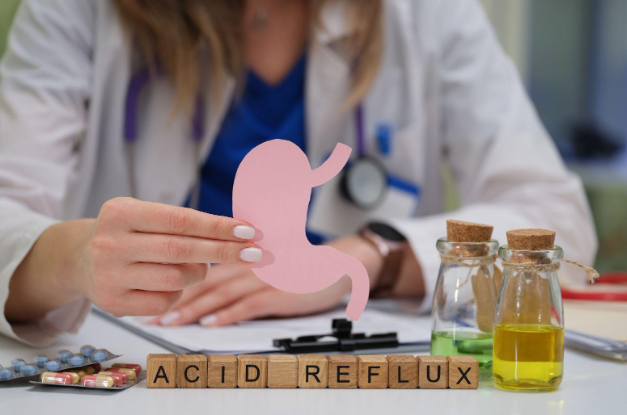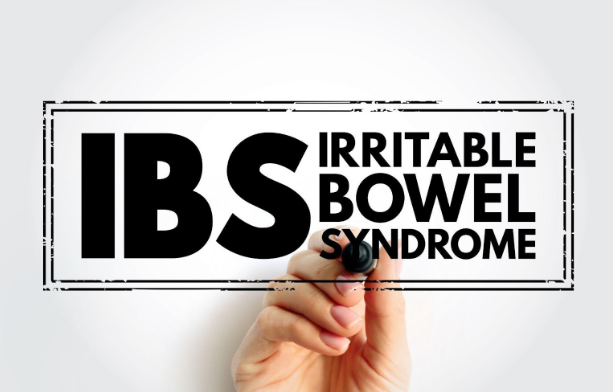Signs It Is Time to See a Gastroenterologist about Your Heartburn

Every minute, countless individuals experience the discomfort of heartburn, often unaware that it may signify underlying gastrointestinal issues. Gastroenterologists specialize in digestive health and play a pivotal role in managing heartburn. Advanced diagnostic tools, such as endoscopy and pH monitoring, can identify the root cause of persistent heartburn and tailor effective treatment plans. Seeking timely advice from a gastroenterologist ensures a comprehensive approach to managing heartburn, promoting long-term relief, and preventing complications.
From recognizing common symptoms to understanding when professional intervention is necessary, gastroenterologists provide essential insights for maintaining a healthy digestive system. Discover dietary recommendations, lifestyle changes, and the importance of regular check-ups to safeguard your gastrointestinal well-being. Prioritize your health by gaining knowledge on proactive measures. Your journey to optimal digestive health starts here.
Read on as we explore the crucial signs that indicate the need to consult a gastroenterologist about your heartburn.
Understanding Heartburn
Heartburn is a burning sensation in the chest caused by stomach acid refluxing into the esophagus. The lower esophageal sphincter (LES) typically prevents this backward flow, but the acid can escape when it weakens or relaxes abnormally, leading to discomfort. Common causes include obesity, hiatal hernia, pregnancy, and certain medications.
While occasional heartburn after a spicy meal is normal, persistent or recurrent episodes may
signal chronic heartburn
or gastroesophageal reflux disease (GERD). Occasional heartburn is usually manageable with lifestyle changes and over-the-counter medications. However, chronic heartburn requires professional evaluation, as it may lead to more severe complications if left untreated.
Several lifestyle factors contribute to heartburn. Excessive consumption of acidic or spicy foods, large meals, and carbonated beverages can trigger episodes. Smoking, obesity, and lying down after meals also increase the risk. Identifying and modifying these lifestyle and dietary habits is crucial in managing and preventing heartburn. Understanding the triggers for heartburn empowers individuals to make informed choices, promoting digestive health.
Common Symptoms of Heartburn
Common heartburn symptoms encompass a burning sensation in the chest, indicative of stomach acid reflux into the esophagus. Regurgitation of acidic contents, leading to a sour taste, and difficulty swallowing are prevalent signs. Persistent cough and hoarseness can also emerge due to stomach acid irritation.
Recognizing these symptoms is pivotal, as they often denote underlying gastrointestinal issues. Understanding the intricacies of these indicators enables individuals to seek timely medical attention, fostering early intervention and effective management of heartburn for improved digestive health.
When to Consider Seeing a Gastroenterologist
Knowing when to seek the expertise of a gastroenterologist is vital for managing heartburn effectively and preventing potential complications. Consider the following factors as red flags that warrant a consultation:
- Frequency and Duration of Heartburn Episodes: If heartburn strikes more than twice a week or persists for extended periods, it's time to consult a gastroenterologist. Early intervention for frequent or prolonged episodes is crucial to prevent complications. Don't let persistent heartburn go unnoticed—prioritize your digestive health with professional guidance.
- Lack of Relief from Over-the-counter Medications: Over-the-counter medications like antacids may temporarily relieve occasional heartburn. However, suppose these remedies fail to alleviate your symptoms, or you rely on them regularly. In that case, professional evaluation becomes crucial to identify the root cause and establish a more effective treatment plan.
- Alarm Symptoms Such as Unexplained Weight Loss or Vomiting Blood: Certain symptoms should never be ignored. Unexplained weight loss or vomiting blood are alarming signs that necessitate immediate attention from a gastroenterologist. These could indicate severe underlying conditions that require thorough investigation and intervention.
- Family History of Gastrointestinal Issues: If your family has a history of gastrointestinal issues, it's paramount to consult a doctor. Genetic predispositions increase your risk of digestive concerns. Seeking medical advice enables personalized screenings and preventive measures, ensuring early detection and management. Prioritize your digestive health by addressing family history proactively, paving the way for a healthier and more informed future.
Individuals can take proactive steps toward better digestive health by recognizing these signs. Early intervention not only alleviates symptoms but also helps prevent the progression of potentially serious gastrointestinal conditions.
Diagnostic Procedures by Gastroenterologists
Accurate diagnosis is crucial for effective treatment when it comes to persistent heartburn. Gastroenterologists employ various diagnostic procedures to identify underlying issues and tailor a targeted approach to each patient's needs. Some of the procedures used include the following:
Endoscopy and Its Role in Diagnosing Underlying Issues
Endoscopy is a cornerstone procedure for gastroenterologists when investigating heartburn. This minimally invasive technique involves inserting a thin, flexible tube with a camera into the esophagus to visually inspect the lining and identify any abnormalities. It allows for direct visualization of issues such as inflammation, ulcers, or Barrett's esophagus, enabling precise diagnosis and treatment planning.
pH Monitoring to Assess Acid Levels
pH monitoring is a valuable tool to measure acid levels in the esophagus over a specific period. This test helps gastroenterologists understand the extent of acid reflux, its correlation with symptoms, and the effectiveness of the lower esophageal sphincter in preventing reflux. By analyzing pH data, healthcare providers can tailor interventions to manage acid levels and alleviate symptoms.
Other Tests to Rule Out Conditions like GERD, Peptic Ulcers, or H. pylori Infection
Gastroenterologists may recommend additional tests to rule out specific conditions contributing to heartburn. For GERD, esophageal manometry can assess the functionality of the esophagus and sphincter muscles. Tests for peptic ulcers may include upper gastrointestinal (GI) series or abdominal ultrasound while detecting H. pylori infection might involve breath, blood, or stool tests.
Importance of Timely Intervention
Untreated heartburn can lead to a cascade of complications, underscoring the critical importance of timely intervention by a gastroenterologist. Here are key reasons why seeking professional help is crucial:
Preventing Complications Associated with Untreated Heartburn
Untreated heartburn can lead to severe complications, including Barrett's esophagus and esophageal cancer. Proactive measures, such as regular check-ups with a gastroenterologist, dietary adjustments, and lifestyle changes, can prevent these outcomes. Recognizing the importance of early intervention is paramount for maintaining digestive health.
Improving Overall Quality of Life with Appropriate Treatment
Enhance your quality of life with tailored treatments for gastrointestinal concerns. Whether addressing heartburn, digestive discomfort, or chronic issues, appropriate treatment can bring relief and improve overall well-being. Discover personalized solutions designed to address your unique needs, paving the way for a healthier, more comfortable life.
Addressing the Root Cause for Personalized Management
A tailored approach ensures effective, sustainable solutions. Rather than merely alleviating symptoms, identifying and addressing the underlying factors allows for targeted interventions. This approach promotes long-term digestive health, preventing recurrent issues and enhancing overall well-being. Embrace a strategy beyond temporary relief—prioritize understanding and managing the root cause for a personalized, effective approach to digestive wellness.
Treatment Options
Possible treatment options include:
- Medications to Reduce Acid Production: Proton pump inhibitors (PPIs) and H2 blockers are commonly prescribed to reduce stomach acid production. PPIs, such as omeprazole and esomeprazole, provide potent acid suppression, promoting healing of the esophagus and preventing further irritation.
- Lifestyle Modifications to Alleviate Symptoms: Lifestyle changes are pivotal in managing heartburn. Simple adjustments, such as maintaining a healthy weight, avoiding large meals close to bedtime, and elevating the head of the bed, can significantly reduce symptoms. Dietary modifications, such as limiting spicy and acidic foods, caffeine, and alcohol, also relieve symptoms.
- Surgical Interventions in Severe Cases: Surgical options may be considered when medications and lifestyle modifications are insufficient. Fundoplication is a common surgical procedure that involves wrapping the top of the stomach around the lower esophagus to reinforce the lower esophageal sphincter, preventing acid reflux.
Tips for a Healthy Digestive System
The following tips can help dietarily with managing heartburn:
- Choose Lean Proteins and High-Fiber Foods: Opt for lean meats, poultry, and fish, and incorporate fiber-rich fruits, vegetables, and whole grains into your diet. Fiber aids digestion and helps prevent constipation, a common digestive concern.
- Limit Trigger Foods: Identify and avoid foods that trigger heartburn, such as spicy or acidic dishes, citrus fruits, and caffeinated beverages. Maintaining a food diary can help pinpoint specific triggers.
- Moderate Portion Sizes: Overeating can put additional strain on your digestive system. Opt for smaller, more frequent meals to promote efficient digestion and reduce the likelihood of heartburn.
To promote digestive health, consider the following lifestyle changes:
- Stay Hydrated: Drinking adequate water supports digestion and helps prevent constipation. Aim for at least eight glasses of water per day.
- Regular Exercise: Physical activity promotes regular bowel movements and overall digestive health. Incorporate moderate exercise into your routine to enhance digestion and reduce the risk of gastrointestinal issues.
- Manage Stress: Chronic stress can impact your digestive system. Practice stress-reducing activities such as yoga, meditation, or deep breathing exercises to support a healthy gut.
These tips can help with regular check-ups and screenings for gastrointestinal issues:
- Schedule Routine Check-ups: Regular visits to a healthcare professional allow for early detection and intervention in case of emerging digestive concerns.
- Screening for Risk Factors: Discuss screening options with your healthcare provider based on family history and personal health factors. Timely screenings can identify potential issues and enable proactive management.
Final Words
Recognizing key signs such as persistent heartburn, unexplained weight loss, and a family history of gastrointestinal issues is crucial for timely intervention. Also, seeking timely professional advice and addressing root causes are fundamental steps toward optimal digestive management. Individuals can alleviate symptoms and cultivate lasting solutions for sustained well-being by incorporating personalized strategies.
Northlake Gastroenterology Associates is ready to provide expert guidance and tailored solutions for your digestive health journey. Take the first step towards optimal well-being—schedule your appointment today. Your digestive health matters.
More Blogs












